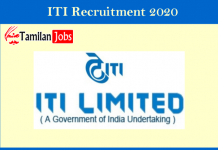
Highlights
- For the remaining 102 trains under the scheme, the railways is going to offer up to 50% discount for ‘last-minute’ bookings made for seats available up to four days before the journey.
- There is also a graded discount system being put in place for trains that see less than 60% bookings.
NEW DELHI: There’s good news in offing for rail passengers. The national transporter is set to scrap the flexi-fare — called dynamic pricing — plan on 40 trains, representing nearly a third of the total number of premium trains covered by the scheme, as it drove away passengers by making rail fares costlier than airline tickets.
That’s not all. For the remaining 102 trains under the scheme, the railways is going to offer up to 50% discount for ‘last-minute’ bookings made for seats available up to four days before the journey. There is also a graded discount system being put in place for trains that see less than 60% bookings.
Under this scheme, up to 20% discount could be available. The scheme was introduced for 44 Rajdhani, 46 Shatabdi and 52 Duronto trains — all in premium super-fast category — on September 9, 2016. Rajdhanis and Shatabdis are entirely air-conditioned trains, while Durantos have a mix of AC and non-AC coaches.
According to sources, the flexi-fare scheme is being scrapped for trains that have shown 50% “utilisation” — a euphemism for bookings. Similarly, the plan is being tweaked to offer convenience and competitive fares to travellers and raise revenue for the railways, they said.
“The focus is on finding a win-win for passengers as well as the railways. The idea is to respond positively to a passenger grievance and wean them back by making rail travel affordable, competitive and comfortable in comparison to other modes. The idea is to raise revenue through higher utilisation of seats; not by putting burden on passengers,” a senior railway official told TOI.
He said the new policy is “ready for approval by the pertinent government functionaries”.






























